How To Target Near Me Keywords: Expert Tips for 2024
Customer behaviour is evolving. The days of extensive desktop searches are gone. Today’s customer is focused on their local area and uses a smartphone to find immediate answers. As of 2023, Google has documented a 150% rise in searches for nearby businesses that include “near me” in the past two years. Worldwide searches for “open […]
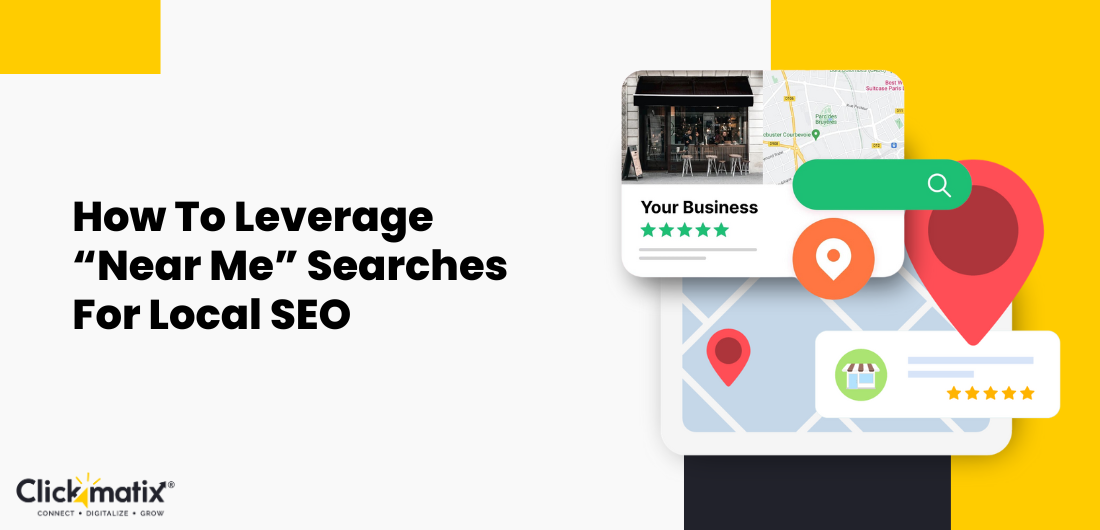
Customer behaviour is evolving. The days of extensive desktop searches are gone. Today’s customer is focused on their local area and uses a smartphone to find immediate answers.
As of 2023, Google has documented a 150% rise in searches for nearby businesses that include “near me” in the past two years. Worldwide searches for “open now near me” have gone up by over 400% since last year.
If your local business isn’t optimised for “near me” searches, you’re invisible at the exact moment a customer is ready to make a purchase.
This blog post will guide you through using the power of “Near Me” SEO. We’ll explore the surge in location-based searches, reveal the strategies to get you noticed and help you convert those searches into loyal customers visiting your business. Let’s get started on how to target near me keywords.
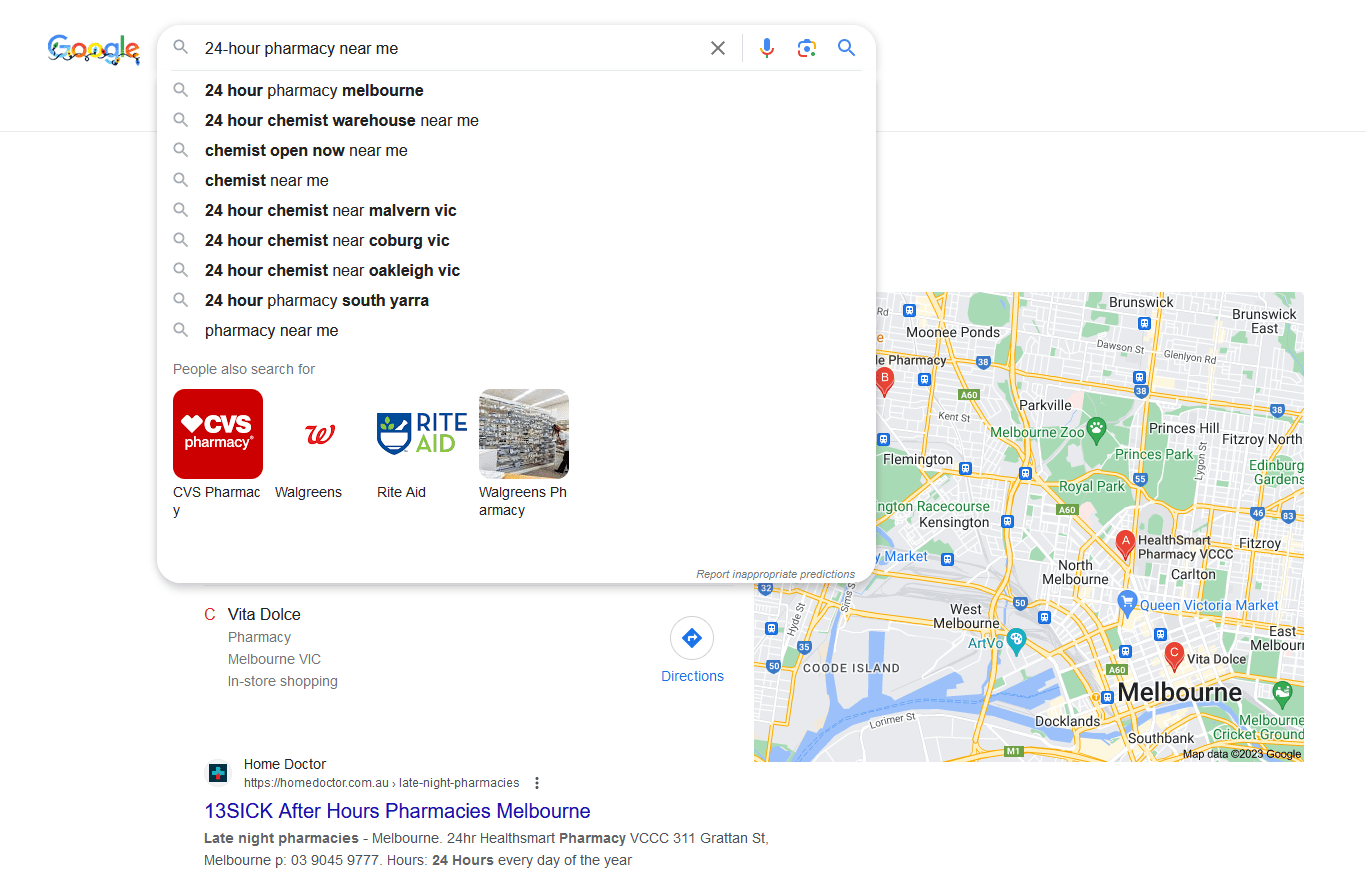
What Is “Near Me” SEO?
“Near Me” SEO is a powerful tool for local businesses like yours. It’s all about optimising your online presence to attract customers who are searching for businesses in your area.
Imagine a customer craving pizza on a Friday night. They’re not going to spend hours researching options – they’ll likely take out their phone and search for “best pizza near me.” “Near Me” SEO ensures your pizzeria shows up in those crucial search results, putting you right in front of customers when they need you most.
These searches are driven by two key factors: convenience and urgency. People are looking for solutions close by, and they want them fast. Whether it’s “24-hour pharmacy near me” or “reliable plumber near me,” “Near Me” SEO helps you connect with these customers at the exact moment they’re ready to do business. Knowing how to target near me keywords can significantly enhance your visibility and ensure your business stands out in local searches.
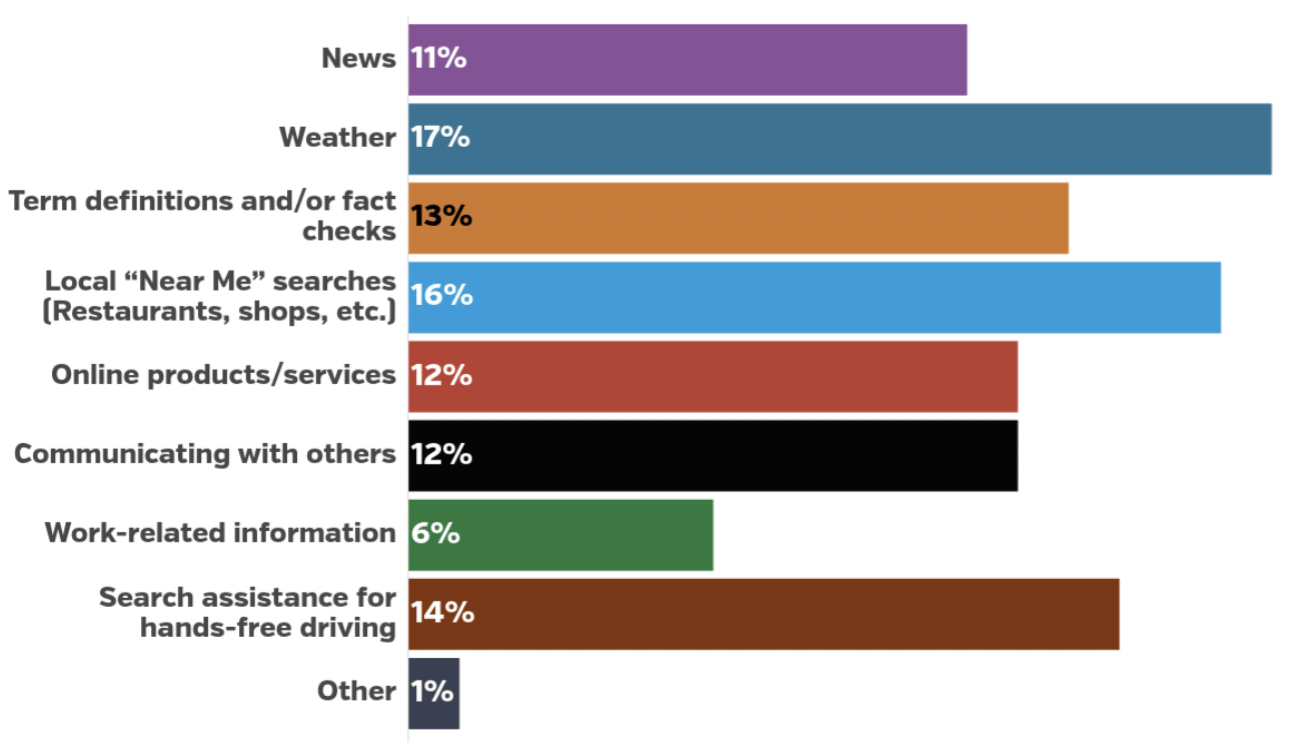
Why “Near Me” SEO Matters for Your Local Business
1. Get Found by Local Customers
- People search online for nearby businesses. “Near Me” SEO puts you at the top of those searches.
- More visibility means more customers choosing you!
2. More Foot Traffic, More Sales
- Rank high in local searches and welcome more customers through your doors.
- Attract people who are ready to buy from a convenient location.
3. Connect with Ideal Customers
- “Near Me” searches target people ready to buy nearby – your perfect customers!
- Reach them at the right time when they’re looking for what you offer.
4. Stay Mobile-First & Competitive
- Be seen by mobile searchers looking for instant solutions nearby.
- Stay ahead of competitors who haven’t adopted “Near Me” SEO.
5. Build Trust & Credibility
- High local SEO ranking builds trust with potential customers.
- Google trusts you, so they will too.
6. Targeted Marketing & Increased ROI
- Attract users most likely to convert, leading to better marketing results.
7. Become a Local Staple
- High visibility positions you as a valuable local business.
- Earn repeat business and become a trusted community fixture.
8. Data-Driven Decisions
- Understand local customer behaviour and tailor your offerings to their needs.
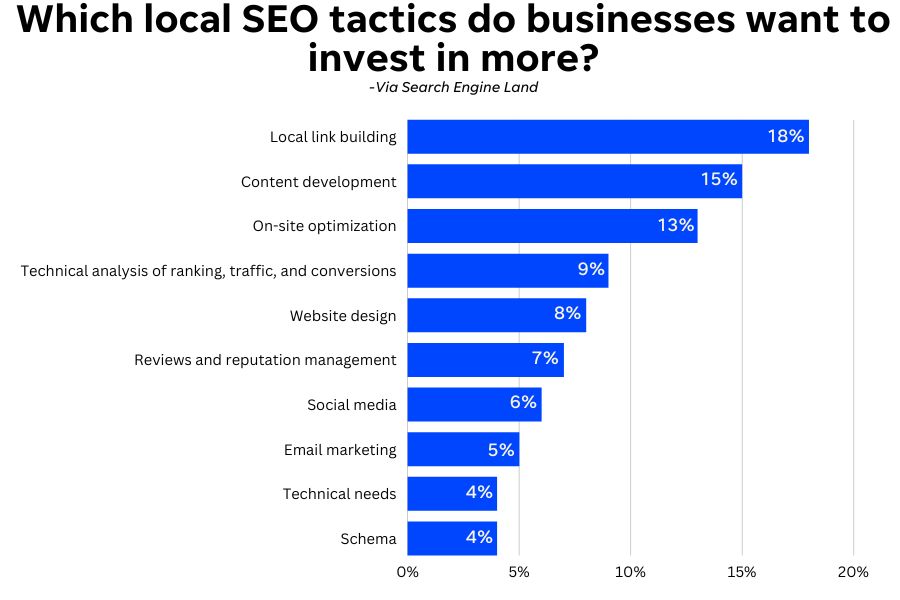
How to Optimise for “Near Me” Searches
1. Claim Your Google Business Profile (GBP) Listing:
A complete and informative GBP profile makes it much easier for potential customers to find you.
- Search for your business: Check if a GBP listing already exists. If not, create a new one!
- Fill in all the details: Your address, phone number, website, and opening hours are crucial.
- Show off your business: Add high-quality photos that showcase your products, services, or atmosphere.
- Encourage customer reviews: Positive reviews build trust and make you stand out.
2. Speak Search Engine Language:
Search engines use codes to understand your website. Schema markup is like adding labels to your online content. They make it easier for search engines to know you’re a local business.
- Structured data markup: Don’t worry—it sounds more complicated than it is. Tools and plugins help you implement this on your website.
- Local business labels: Use schema types like “LocalBusiness” or “Place” to let search engines know you’re a local game changer.
3. Get the Local Buzz:
Imagine getting recommendations from trusted sources—that’s the power of backlinks. These are links from other websites that point back to yours, and search engines see them as a sign of your credibility.
- Connect with local websites: Reach out to bloggers, news outlets, or directories in your area. Offer them interesting content or partner on local events to score backlinks with geographic terms like your city or neighbourhood in the link text.
4. Multiple Locations, Multiple Chances to Shine:
If you have several branches, create a dedicated page for each location on your website.
- Unique pages for each branch: Include the specific address, phone number, and details relevant to that location.
- Local twist on content: People in different areas might have different needs. Tailor your content to resonate with each community.
5. Mobile-First is the Way to Go:
Most “near me” searches happen on smartphones. If your website isn’t mobile-friendly, you’re missing out on valuable customers.
- Responsive design: This ensures your website automatically adjusts to fit any screen size.
- Fast loading times: Nobody likes to wait for a website to load. Keep your pages lean and optimised for speed.
- Simplified navigation: Make it easy for mobile users to find what they need on your website.
6. Become a Local Content Hub:
A blog is a great way to connect with your community and establish yourself as a local expert.
- Local focus: Write about events, news, or topics that resonate with people in your area.
- Local links: The more local websites link back to yours, the better your local SEO.
Pro Tips On How To Target Near Me Keywords
- Use specific keywords: Instead of general terms, focus on phrases that describe what you offer and where you are. For example, “dog walkers accepting new clients in Sydney” or “acro yoga classes near me”.
- Create local content: Share information relevant to your community, like running a “best beaches for surfing” poll in summer or creating a blog series highlighting unique independent bookstores.
- Optimise online listings: Businesses need accurate and consistent information across online directories. This includes your name, address, and phone number on platforms like Google Business Profile, Yelp, and Bing Places. It’s your online business card – make sure it’s up-to-date and easy to find!
- Improve website visibility: Use schema markup to help search engines understand your website content better. Imagine you have a delicious new apple pie recipe on your bakery’s website. Schema markup can add a label that says “Amazing Apple Pie Recipe” to your online pie, making it easier for people searching for “best apple pie recipes” to find yours.
- Build local reputation: Encourage customer reviews and get mentioned in local online directories and articles. For example, if you run a bakery, you could ask local food bloggers to write about your latest creations or sponsor a community bake-off competition.
- Optimise for mobile: Imagine you’re a tourist in a foreign country, desperately craving a local specialty. A quick “best fish n chips near me” search on your phone should lead you straight to an authentic experience, not a website that looks like it belongs in a bygone era. Ensure your website is mobile-friendly. It should be with clear and concise information, easy-to-read menus (if applicable), and prominent calls to action (like “Book Now” or “Learn More” buttons).
- Partner with local businesses: Collaborate with other local companies to reach more customers. For example, a pet store could partner with a local dog walker to offer a discount on grooming services to the dog walker’s clients, or a yoga studio could co-host a “wine and unwind” evening with a nearby wine bar.
Track Your Local SEO Success: Grow Your Business
Optimising your site isn’t enough. Track results to:
- See who finds you: Track local visitors with Google Analytics and My Business Insights.
- Understand their actions: Analyse what visitors do on your site (browsing, contacting, buying).
- Measure success: Track conversions like calls, visits, or sales to see if “Near Me” SEO works.
- Refine your approach: Use data to focus on what’s working and improve what’s not.
- Stay ahead: Continuously optimise your strategy based on digital trends.
Close the Gap and Attract Local Customers
Understanding “Near Me” SEO is crucial to connecting with potential customers searching for businesses nearby. Implementing these strategies can help bridge the gap between your online presence and your local market. This not only increases your online visibility but also drives more customers directly to your door, boosting sales.
Conclusion:
Don’t miss out on competitors. Start optimising your local SEO today. Consider partnering with experienced SEO consultants for expert guidance. They’ll equip you to stay ahead, build a strong local presence, and leverage the power of “Near Me” SEO to watch your business flourish. By understanding how to target near me keywords, you can ensure that your business appears at the top of search results when potential customers are looking for your services.
FAQ:
How to Target 'Near Me' Related Keywords in the Website?
Want your website to pop up in 'Near Me' searches? Sprinkle location words throughout your website. Write content that locals will find interesting and helpful. Don't forget to describe your images with the right location names. Keep your Google My Business listing up to date with the correct info. And keep your website fresh with new content that locals care about. This way, when people nearby search for something, your site will be right there waiting for them.
How Do I Optimise Local Seo for Multiple Locations?
If your business has multiple locations, you'll want each spot to shine online. Create special pages on your website for each place, with info for them. Make sure the details for each spot are the same everywhere online. Use location words in your website content, meta tags, and headers. Don't forget to set up a Google My Business page for each spot and ask your customers to leave reviews. Keep an eye on all your locations, updating info when things change. That way, all your spots can show up strong in local searches.
Should You Use 'Near Me' as a Keyword?
Absolutely! Using 'near me' as a keyword can give your business a boost in local searches. Mention them in your website's content, headers, and meta tags. Keep it sounding natural. You might also want to try variations like 'close by' or 'nearby' to catch different search phrases. Check your website stats to see how well 'near me' works for you and make changes if needed. It's a smart move because people who use 'near me' in their searches are often ready to visit a local business. So, using it as a keyword can help you be the first one they find.
What's Your Reaction?








![How to Understand & Calculate Statistical Significance [+ Example]](https://www.hubspot.com/hubfs/how-to-calculate-statistical-significance-1-20250106-7754856.webp)






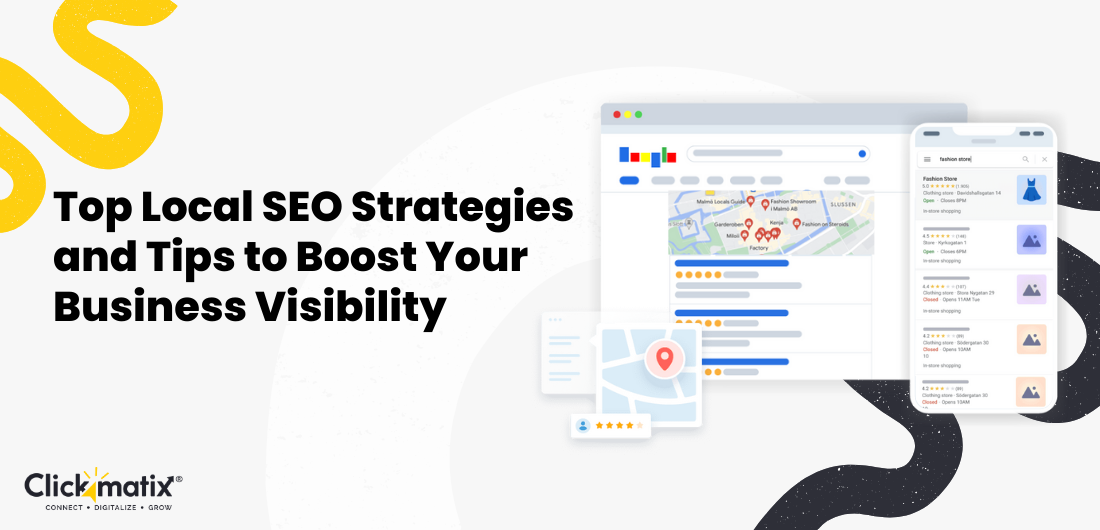























.png)












































